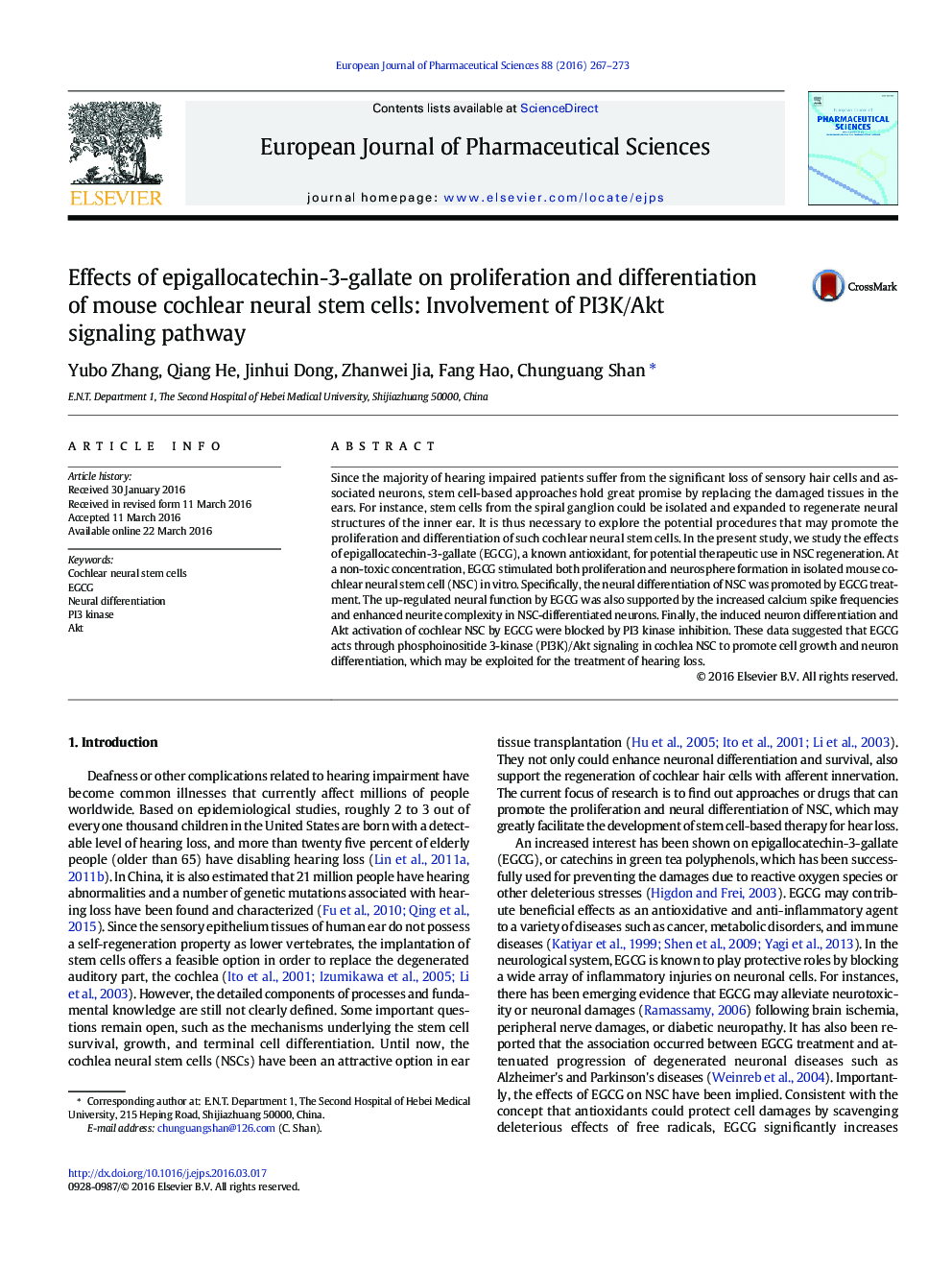| Article ID | Journal | Published Year | Pages | File Type |
|---|---|---|---|---|
| 5809692 | European Journal of Pharmaceutical Sciences | 2016 | 7 Pages |
Since the majority of hearing impaired patients suffer from the significant loss of sensory hair cells and associated neurons, stem cell-based approaches hold great promise by replacing the damaged tissues in the ears. For instance, stem cells from the spiral ganglion could be isolated and expanded to regenerate neural structures of the inner ear. It is thus necessary to explore the potential procedures that may promote the proliferation and differentiation of such cochlear neural stem cells. In the present study, we study the effects of epigallocatechin-3-gallate (EGCG), a known antioxidant, for potential therapeutic use in NSC regeneration. At a non-toxic concentration, EGCG stimulated both proliferation and neurosphere formation in isolated mouse cochlear neural stem cell (NSC) in vitro. Specifically, the neural differentiation of NSC was promoted by EGCG treatment. The up-regulated neural function by EGCG was also supported by the increased calcium spike frequencies and enhanced neurite complexity in NSC-differentiated neurons. Finally, the induced neuron differentiation and Akt activation of cochlear NSC by EGCG were blocked by PI3 kinase inhibition. These data suggested that EGCG acts through phosphoinositide 3-kinase (PI3K)/Akt signaling in cochlea NSC to promote cell growth and neuron differentiation, which may be exploited for the treatment of hearing loss.
Graphical abstractDownload high-res image (287KB)Download full-size image
